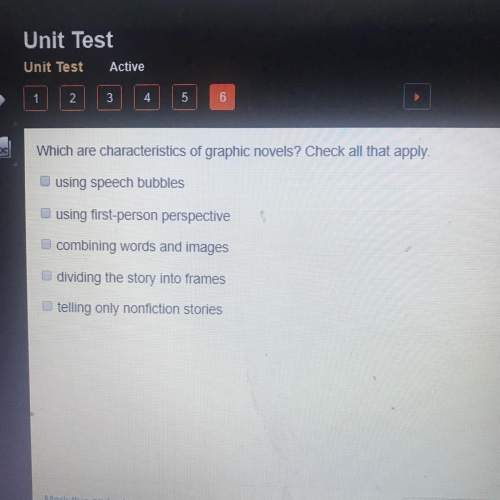
English, 26.11.2020 18:50 jenifferplowman
(LC)
Letter to a Citizen of Kentucky, an excerpt
Executive Mansion, Washington,
April 4, 1864.
A. G. Hodges, Esq., Frankfort, Ky.
My Dear Sir:
You ask me to put in writing the substance of what I verbally stated the other day, in your presence, to Governor Bramlette and Senator Dixon. It was about as follows:
I am naturally anti-slavery. If slavery is not wrong nothing is wrong. I cannot remember when I did not so think and feel; and yet I have never understood that the Presidency conferred upon me an unrestricted right to act officially in this judgment and feeling. It was in the oath I took that I would to the best of my ability preserve, protect and defend the Constitution of the United States. I could not take the office without taking the oath. Nor was it in my view that I might take the oath to get power, and break the oath in using the power.
I understood, too, that in ordinary civil administration this oath even forbade me to practically indulge my primary abstract judgment on the moral question of slavery. I had publicly declared this many times and in many ways; and I aver that, to this day I have done no official act in mere deference to my abstract judgment and feeling on slavery. I did understand, however, that my oath to preserve the Constitution to the best of my ability imposed upon me the duty of preserving, by every indispensable means, that government, that nation, of which that Constitution was the organic law. Was it possible to lose the nation, and yet preserve the Constitution?
By general law, life and limb must be protected; yet often a limb must be amputated to save a life, but a life is never wisely given to save a limb. I felt that measures, otherwise unconstitutional, might become lawful by becoming indispensable to the preservation of the Constitution through the preservation of the nation. Right or wrong, I assumed this ground, and now avow it. I could not feel that to the best of my ability I had even tried to preserve the Constitution, if, to save slavery, or any minor matter, I should permit the wreck of government, country, and Constitution altogether.
When, early in the war, General Fremont attempted military emancipation, I forbade it, because I did not then think it an indispensable necessity. When, a little later, General Cameron, then Secretary of War, suggested the arming of the blacks, I objected, because I did not yet think it an indispensable necessity. When, still later, General Hunter attempted military emancipation, I forbade it, because I did not yet think the indispensable necessity had come. When, in March and May and July, 1862, I made earnest and successive appeals to the Border States to favor compensated emancipation, I believed the indispensable necessity for military emancipation and arming the blacks would come, unless averted by that measure. They declined the proposition; and I was, in my best judgment, driven to the alternative of either surrendering the Union, and with it the Constitution, or of laying strong hand upon the colored element. I chose the latter. In choosing it, I hoped for greater gain than loss; but of this I was not entirely confident...
Yours truly,
A. Lincoln
In the lines in bold, President Lincoln describes pursuing compensated emancipation. How did the Border States respond? (4 points)
a
They rejected it.
b
They accepted it.
c
They did not respond.
d
They armed themselves.

Answers: 3


Another question on English

English, 22.06.2019 02:00
What is one way that “the maori: genealogies and origins in new zealand” contrasts with “the raven and the first men: the beginnings of the haida”? a.the maori myth features courage, but the haida myth does not. b.the maori myth features community, but the haida myth does not. c.the maori myth features the gods, but the haida myth does not. d.the maori myth features deception, but the haida myth does not.
Answers: 2

English, 22.06.2019 02:20
Read the excerpt from "politics and the english language" by george orwell. by this morning’s post i have received a pamphlet dealing with conditions in germany. the author tells me that he "felt impelled” to write it. i open it at random, and here is almost the first sentence that i see: "[the allies] have an opportunity not only of achieving a radical transformation of germany’s social and political structure in such a way as to avoid a nationalistic reaction in germany itself, but at the same time of laying the foundations of a cooperative and unified europe.” which statement is correct? orwell uses an example and statistical evidence in this excerpt. orwell uses an example and a quotation for evidence in this excerpt. orwell uses hypothetical and factual evidence in this excerpt. orwell uses hypothetical and statistical evidence in this excerpt.
Answers: 2

English, 22.06.2019 04:00
What can the reader infer about the fears and values of the ancient greeks based on this description of the cyclops’s island?
Answers: 2

English, 22.06.2019 07:10
In 2–3 complete sentences, thoroughly explain the protagonist's main motivation or goal in "daughter of inventions"? what does the protagonist want? provide at least two specific details from the text to support your analysis of the protagonist's motivation or goal.
Answers: 1
You know the right answer?
(LC)
Letter to a Citizen of Kentucky, an excerpt
Executive Mansion, Washington,
A...
Executive Mansion, Washington,
A...
Questions




Health, 17.12.2020 01:40


English, 17.12.2020 01:40

Mathematics, 17.12.2020 01:40

Arts, 17.12.2020 01:40



English, 17.12.2020 01:40

Business, 17.12.2020 01:40



Mathematics, 17.12.2020 01:40

Spanish, 17.12.2020 01:40

English, 17.12.2020 01:40


English, 17.12.2020 01:40




